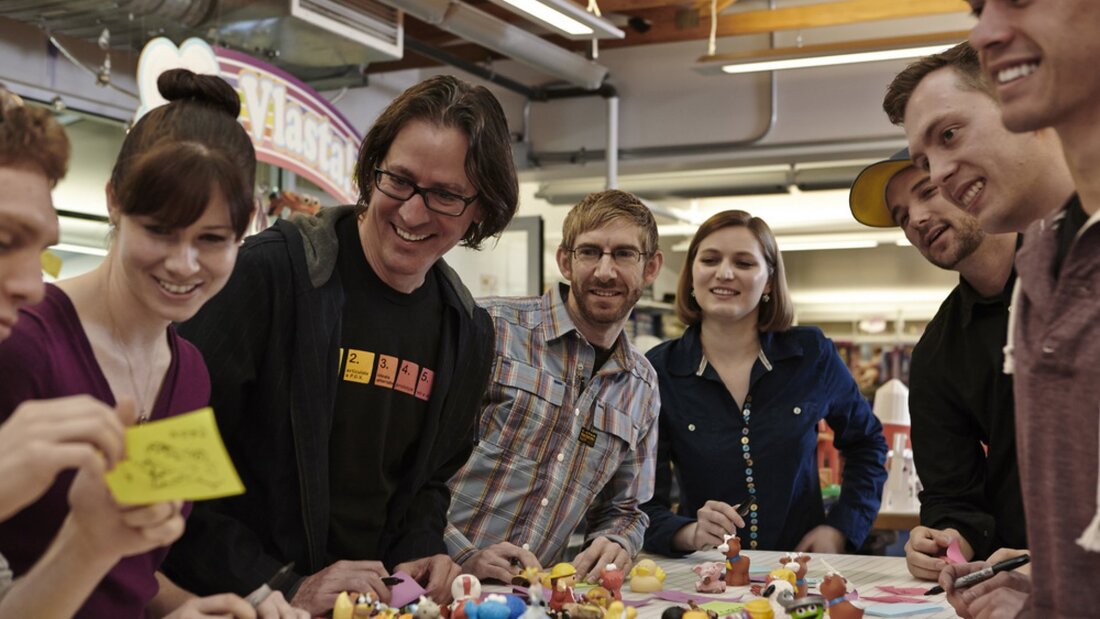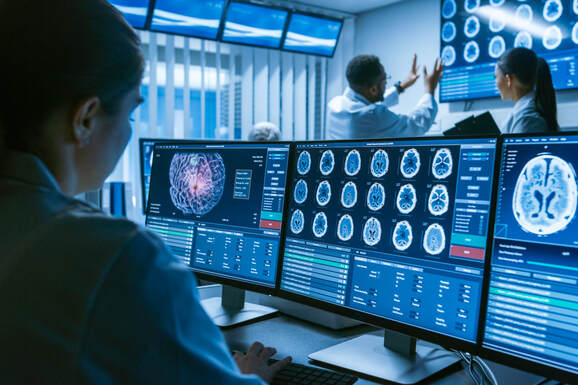Igniting Transformation
Organisations are entering an era of unprecedented change.
Unlocking value and growth means investing in people.
Unlocking value and growth means investing in people.
Micro-learningOn-demand, 24/7, just-in-time answers to critical questions.
|
SynchronousFace to face, trust-building, deep learning for lasting change.
|
AsynchronousFostering skills, knowledge & awareness whenever + whenever.
|
PodcastingLong form, deep dives into complex and multi-faceted topics.
|
VideoImmersive learning for internal
& external audiences. |
Off-site RetreatsCreating cohesive, high-performing and focused teams that last.
|
We've enjoyed working with
The Future of Learning -
|
Neurocardiology -
|
|
Have you considered the immense potential of artificial intelligence (AI) in education? AI has already made significant impacts in various sectors such as medicine and finance, but its transformative effects in the e-learning space are somewhat overlooked.
The AI Education Revolution: AI is reshaping the way we learn by creating smarter, personalised learning experiences for participants. It facilitates quicker and more efficient content access while empowering educators to monitor progress and identify areas requiring additional support. The Advantages of AI in E-Learning: AI is driving substantial changes in the e-learning industry, making learning more efficient, engaging, and informative than ever. Here are the key ways AI is transforming eLearning:
The role of AI in eLearning will continue to evolve, presenting exciting opportunities for students and instructors alike. Interactive simulations and advanced content creation tools are just a glimpse of what the future holds. At Possiblio.com, we're committed to harnessing the power of AI, provided it means a better learning experience (and we believe it does). Explore the possibilities of AI for your teams and begin shaping the future with us today! |
Far more than a simple pump, as was once believed, the heart is now recognized by scientists as a highly complex system with its own functional “brain.”
Research in the new discipline of neurocardiology shows that the heart is a sensory organ and a sophisticated centre for receiving and processing information. The nervous system within the heart (or “heart brain”) enables it to learn, remember, and make functional decisions independent of the brain’s cerebral cortex. Moreover, numerous experiments have demonstrated that the signals the heart continuously sends to the brain influence the function of higher brain centres involved in perception, cognition, and emotional processing. So How Does This Affect Learning? The heart generates the body’s most powerful rhythmic electromagnetic field. Compared to the field produced by the brain, the electrical component of the heart’s field is about 60 times greater in amplitude, and permeates every cell in the body. The magnetic component is approximately 5000 times stronger than the brain’s magnetic field and can be detected several feet away from the body with sensitive magnetometers. Researchers have demonstrated, for example, that brain rhythms naturally synchronise to the heart’s rhythmic activity, and also that during sustained feelings of love or appreciation, the blood pressure and respiratory rhythms, among other oscillatory systems, entrain to the heart’s rhythm. The ramifications for learning are substantial and far-reaching. From childhood, we are natural learners, learning and absorbing at a fantastic rate for our first few years of life. When we reach school however, many of us begin to develop a different attitude to learning. We are set against other children in competitions, told that we are "good" at some subjects but "bad" at others, are graded and possibly even streamed into groups based on how "smart" we are. The education system many of us have grown up with has created an attitude and emotional reaction to learning that for many can dictate the course of the rest of their adult lives. If we can learn more about this phenomenon and most importantly, begin to address this by truly connecting with people when we train or teach them - we may unlock hidden potential and unrealised attributes long hidden by a screen of ideals, beliefs and judgments made many decades earlier. We've certainly noted in our work that the majority of our participants arrive at their eLearning program feeling reluctant, dispirited and frustrated. It's a given that most eLearning has historically been appalling, so it's hardly surprising. We're working to change this. We're committed to creating first and foremost with the human recipient in mind. Contact us today, and give your team the gift of feeling seen, heard and respected. |






